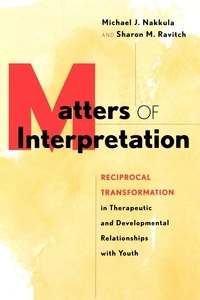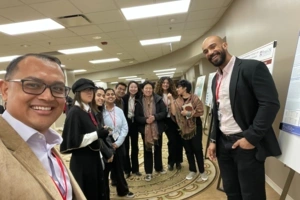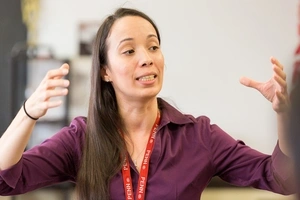Biography
Dr. Nakkula’s teaching and research focus on the development of resilience and the promotion of possibility development among children and youth from low-income backgrounds. He is particularly interested in the integration of counseling, mentoring, and educational processes in urban schools to create contexts that allow students to thrive in school and during their transition to higher education and career opportunities. Dr. Nakkula works with many national and international organizations to develop applied research strategies that promote the study of developmental and educational initiatives in support of enhanced mental health and optimal youth development.
Education
- Ed.D. (Counseling and Consulting Psychology) Harvard Graduate School of Education, 1993
- M.A. (Counseling) University of Minnesota-Duluth, 1984
- B.A. (Psychology) Michigan State University, 1981
- B.A. (Communications) Michigan State University, 1980
Areas of Expertise
- Adolescent development
- Risk and resilience
- Counseling and prevention
- Youth mentoring
Academic Programs
Interdisciplinary Studies in Human Development, M.S.Ed. Interdisciplinary Studies in Human Development, Ph.D. Penn Chief Learning Officer, Ed.D. Professional Counseling, M.Phil.Ed. School and Mental Health Counseling, M.S.Ed.Research Interests and Current Projects
Dr. Nakkula’s research has long been organized under the umbrella of Project IF (Inventing the Future), a strength-based youth development initiative. Through Project IF, Dr. Nakkula works with colleagues and organizations that share the mission of promoting and studying healthy or optimal youth development. For more than a decade he has worked with John Harris, of Applied Research Consulting, to study the nature and benefits of youth mentoring. Together they have created instruments to assess mentor and protégé perspectives on the quality of mentoring relationships. They are currently studying the association between match quality and a host of educational and developmental outcomes.
Dr. Nakkula is now in the tenth year of a longitudinal study on the impact of Early College High Schools (which help urban high school students work toward an associate’s degree while earning their high school diploma) on students’ academic identity development and college success. Initially funded by the Bill and Melinda Gates Education Foundation, this research has been conducted in partnership with Jobs for the Future, an educational and economic policy organization that works to create and shape policies that have a particular impact on low-income youth and young adults.
As a complement to his focus on small urban schools designed to promote college success, Dr. Nakkula has partnered with the Project for School Innovation to study effective practices among small "second-chance" charter schools, which focus on promoting educational success and career preparation for students who are at high risk for academic failure and related challenges. Dr. Nakkula has also worked with Search Institute to study communities that have created unique applications of Search’s well-known developmental assets framework.
As a follow-up to his forthcoming series of edited books with Dr. Andrew Schneider-Munoz, Adolescent Psychology in Today’s World: Global Perspectives on Risk, Relationships, and Development (Praeger Press, 2018), Dr. Nakkula is partnering with colleagues to develop, implement, and study “possibility projects” in countries around the world. The projects are intended to help youth conceive of and actualize possibilities they would like to pursue. Initial projects are being piloted in Philadelphia and in parts of India and China.





